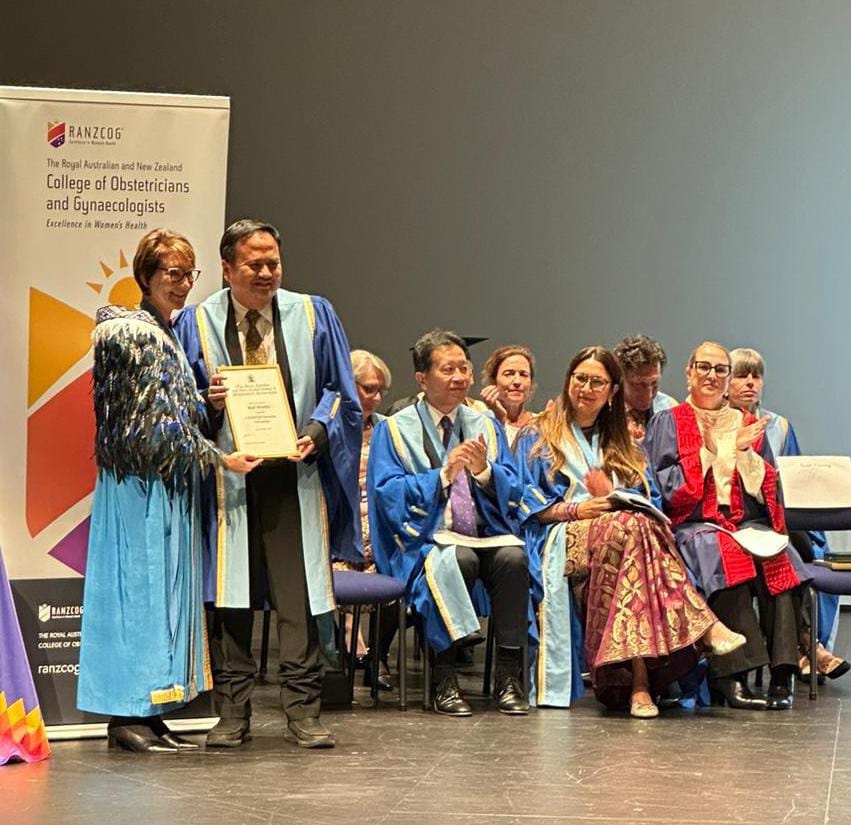At her inauguration as professor at the Faculty of Psychology (FPsi), Universitas Indonesia (UI), this morning (Saturday, 16/12), Prof. Dr. Mirra Noor Milla S.Sos., M.Si. explained the results of the study she conducted in a speech entitled “Application of Social Psychology in the Study of Radicalization and Terrorism: Prevention and Rehabilitation Efforts”. She explained the role of motivation, ideology, and groups in radicalization, as well as their implementation in psychological interventions, both as prevention and rehabilitation efforts for radicalism and terrorism in Indonesia.
Prof. Mirra said, for more than 20 years since the Bali Bomb attacks that occurred in 2002, the problem of terrorism in Indonesia continues to this day. Although, based on Global Terrorism Index data from 2021-2022 (GTI Report, 2023), overall in the South Asia region, Indonesia is one of the countries that shows a reduced impact of damage due to terrorism compared to 2021.
She added that the consensus of researchers on this topic states that no single profile has been found to explain terrorism. Most extremists come from ordinary people in the general population without a diagnosed mental disorder. Terrorism is the result of a radicalization process, namely a gradual process that leads to strengthening support for extreme violence. This stage was also observed in the Bali Bombing perpetrators, starting with individuals being exposed to an environment that supports extreme beliefs (pre-radicalization) and leading to self-identification with groups that have high entitativity (self-identification).
This group is the main source of self-worth and validation (commitment), which provides justification (indoctrination) and leads to one main goal, namely jihad (jihad ideology). This radicalization process is also shown to have a psychological basis in each stage, namely a process that is motivated by the need to gain self-significance through identity transformation, then strengthened in a group process to serve the single goal of fulfilling the meaning of oneself and the group.
According to Prof. Mirra, terrorism is a complex phenomenon and requires understanding across scientific disciplines, including Psychology, especially Social Psychology. This science presents an analytical framework at both the individual and group levels, to explain why and how individuals are involved in acts of terrorism. Many social scientists describe terrorism as a gradual process of radicalization.
In explaining radicalization there are three components, namely needs that motivate individuals, ideological narratives that justify, and groups or social networks that validate. The explanation of the stages of radicalization needs to be revisited in explaining online radicalization, considering that in the digital information era the radicalization process is becoming faster and includes an increasingly diverse group of individuals. Therefore, explaining personal factors has relevance to better understand how radicalization occurs when the group’s role is limited.
For this reason, understanding the radicalization process is key to detailing the possible deradicalization paths that can be taken. Evaluations of the effectiveness of terrorist rehabilitation programs in various countries show diversity and have not reached definite conclusions. The main challenge lies in the nature of extreme ideological beliefs that are difficult to change. However, several programs have shown progress and potential success. The combination of counter-ideology programs and psychological support programs is the most promising to date.
The difficulty in shifting or changing motivated extreme beliefs points to the relevance of prevention efforts, namely by breaking the chain of radicalization for vulnerable individuals before they are exposed to and involved in acts of extreme violence. In addition, by strengthening individual resistance to extremism and radicalism propaganda. At the community level, prevention can be realized through efforts to avoid polarization between groups, considering that a polarized society can foster the spread of extreme narratives and become a potential risk for vulnerable individuals.
The inauguration ceremony of Prof. The Mirra which was held at the UI Convention Hall was attended by guests, starting from Research Professor and Chairman of the Institute of Social Sciences and Humanities (ISSH) National Research and Innovation Agency (BRIN) Prof. Dr. Ahmad Najib Burhani, M.A.; Director of Strategy and Sustainability PT Perkebunan Nusantara IV Ugun Untaryo, ST, MBA.; Chairman of the Indonesian Psychological Association, Dr. Andik Matulessy, M.Si, Psychologist; and Vice Rector for Law, Cooperation, Public Relations and Ventures at Pancasila University Dra. Diennaryati Tjokrosuprihatono, M.Psi., Psychologist.
Prof. Mirra completed her bachelor’s degree in mass communication at Sebelas Maret University, Surakarta, in 1996. After that, she continued her Masters and Doctoral studies in Psychology at Gadjah Mada University (UGM) and graduated in 1999 and 2009. Several of her scientific works have been published, including the title Identifying important individual- and country-level predictors of conspiracy theorizing: A machine learning analysis (2023); Mechanisms of 3n model on radicalization: testing the mediation by group identity and ideology of the relationship between need for significance and violent extremism, studies in conflict and terrorism (2022); and Predictors of adherence to public health behaviors for fighting COVID-19 derived from longitudinal data (2022).



